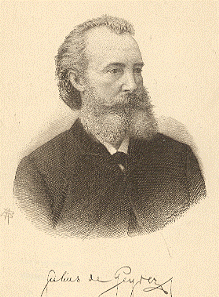Julius De Geyter on:
[Wikipedia]
[Google]
[Amazon]
 Julius De Geyter (
Julius De Geyter (
 Julius De Geyter (
Julius De Geyter (Lede
Lede may refer to:
* Lead paragraph (US English), the first paragraph of a composition
Places
* Lede, Belgium, a municipality in Flanders
* Lède, a river in France
* Lede Formation, a geologic formation in Belgium
People
* Marquess of Lede of ...
, 25 April 1830 – Antwerp
Antwerp (; nl, Antwerpen ; french: Anvers ; es, Amberes) is the largest city in Belgium by area at and the capital of Antwerp Province in the Flemish Region. With a population of 520,504,
, 18 February 1905) was a Flemish
Flemish (''Vlaams'') is a Low Franconian dialect cluster of the Dutch language. It is sometimes referred to as Flemish Dutch (), Belgian Dutch ( ), or Southern Dutch (). Flemish is native to Flanders, a historical region in northern Belgium; ...
writer born in Lede
Lede may refer to:
* Lead paragraph (US English), the first paragraph of a composition
Places
* Lede, Belgium, a municipality in Flanders
* Lède, a river in France
* Lede Formation, a geologic formation in Belgium
People
* Marquess of Lede of ...
, Belgium
Belgium, ; french: Belgique ; german: Belgien officially the Kingdom of Belgium, is a country in Northwestern Europe. The country is bordered by the Netherlands to the north, Germany to the east, Luxembourg to the southeast, France to th ...
. He started his career as a teacher and journalist. In 1874, he became director of the Bank van Lening in Antwerp. Together with J.F.J. Heremans and E. Zetternam he founded the literary illustrated magazine "De Vlaamsche School", which existed from 1855 until 1862. Together with his friend Julius Vuylsteke
Julius Vuylsteke (Ghent, 10 November 1836 – Ghent, 16 January 1903) was a Belgian liberal politician and writer. He started his career as a lawyer, but later opened a bookshop. As a liberal Flemish politician, he founded the liberal association ...
he was one of the most important political poets of his time and he was one of the leaders of the Flemish movement
The Flemish Movement ( nl, Vlaamse Beweging) is an umbrella term which encompasses various political groups in the Belgian region of Flanders and, less commonly, in French Flanders. Ideologically, it encompasses groups which have sought to promo ...
. Julius De Geyter is the author of many romantic and political poems, which were mostly rhetorical
Rhetoric () is the art of persuasion, which along with grammar and logic (or dialectic), is one of the three ancient arts of discourse. Rhetoric aims to study the techniques writers or speakers utilize to inform, persuade, or motivate parti ...
and sometimes anticlerical
Anti-clericalism is opposition to religious authority, typically in social or political matters. Historical anti-clericalism has mainly been opposed to the influence of Roman Catholicism. Anti-clericalism is related to secularism, which seeks to ...
. He wrote also to the texts of several cantatas of Peter Benoit
Peter Benoit (17 August 18348 March 1901) was a Flemish composer of Belgian nationality.
Biography
Petrus Leonardus Leopoldus Benoit was born in Harelbeke, Flanders, Belgium in 1834. He was taught music at an early age by his father and the vil ...
, such as the ''Rubenscantate'' in 1877. In 1874, he also rewrote the text of Reinaert de Vos in rhyme
A rhyme is a repetition of similar sounds (usually, the exact same phonemes) in the final stressed syllables and any following syllables of two or more words. Most often, this kind of perfect rhyming is consciously used for a musical or aesthetic ...
. He died in Antwerp
Antwerp (; nl, Antwerpen ; french: Anvers ; es, Amberes) is the largest city in Belgium by area at and the capital of Antwerp Province in the Flemish Region. With a population of 520,504,
at age 74.
Bibliography
* Bloemen op een graf (1857) * Drii menschen van in de wieg tot in het graf (poetry, 1861) * Reinaart-de-Vos (re-rhyming, 1874) * Vlaanderens kunstroem (Rubenscantate, 1877) * De wereld in (1878) * De muze der geschiedenis (1880) * De Rhijn (cantata
A cantata (; ; literally "sung", past participle feminine singular of the Italian verb ''cantare'', "to sing") is a vocal composition with an instrumental accompaniment, typically in several movements, often involving a choir.
The meaning of ...
, 1882)
* Keizer Karel en het Rijk der Nederlanden (poetry, 1888)
* Julius De Geyter's werken (1907-1909)
See also
*Flemish literature Flemish literature is literature from Flanders, historically a region comprising parts of present-day Belgium, France and the Netherlands. Until the early 19th century, this literature was regarded as an integral part of Dutch literature. After Bel ...
References
* Verschaeren, José, ''Geyter, Julius (eigenlijk Jan) de'', ''Nieuwe Encyclopedie van de Vlaamse Beweging''. Tielt: Lannoo, 1998. pp. 1306–1307.External links
* {{DEFAULTSORT:Geyter, Julius De 1830 births 1905 deaths Flemish activists Flemish writers People from East Flanders